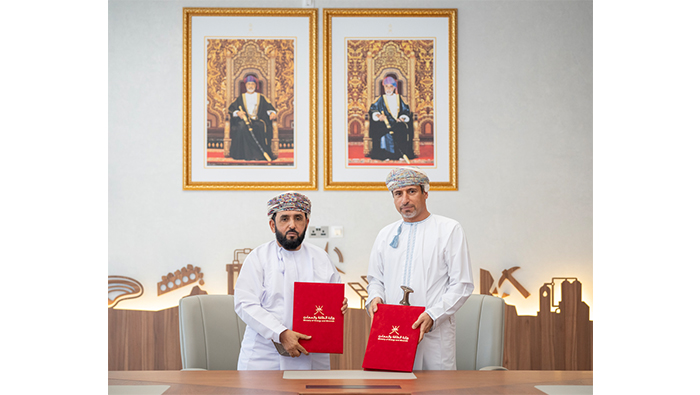
Muscat: The Ministry of Energy and Minerals on Sunday signed a mining concession agreement with the Global Integrated Engineering Company for Concession Area "I-51" in Al Wusta Governorate. The project has an estimated production capacity of 1.2 million tonnes annually, covering an area of 15 square kilometres.
The agreement was signed on behalf of the government of the Sultanate of Oman by Eng. Salim Nasser Al Aufi, Minister of Energy and Minerals, and on behalf of the Company by Ali Salim Al Junaibi, Chairman of the company’s Board of Directors.
The agreement aims to increase the production capacity of salt compounds from the existing plant and establish additional facilities to boost natural salt output. The process involves extracting salt from the area by constructing seawater storage ponds, allowing natural evaporation through wind and solar heat, followed by drying, refining, purifying, and packaging the salt. The expected investment value is OMR200 million.
Eng. Salim Nasser Al Aufi, Minister of Energy and Minerals, emphasised that this project represents a significant strategic step that will effectively contribute to advancing economic diversification in Oman. He added that the project is expected to generate numerous job opportunities for Omani citizens.
He noted that the primary objective is to enhance natural salt production and develop its industrial derivatives for use in diverse projects that support sustainable development.
He further highlighted that this project is the third of its kind for sea salt production in Oman, reflecting the ministry’s efforts to promote local industries, maximize the utilization of natural resources, and reduce reliance on imported products.
Ali Salim Al Junaibi stated that securing the concession rights for Area I-51 in Al Wusta Governorate will increase the plant’s production capacity to one million tons annually. This is expected to meet the needs of the local market and emerging downstream industries currently under development as part of the economic projects under "Oman Vision 2040."
He added that the company will produce multiple salt derivatives required by both local and global markets, particularly those used in food processing, animal feed, and pharmaceutical industries.
He explained that this agreement reinforces the government’s approach toward localizing industries, optimising natural resource utilisation, and reducing dependence on imported products. This will enhance the performance of the national economy and generate diverse employment opportunities for Omani professionals, as well as subcontracting prospects for small and medium enterprises.